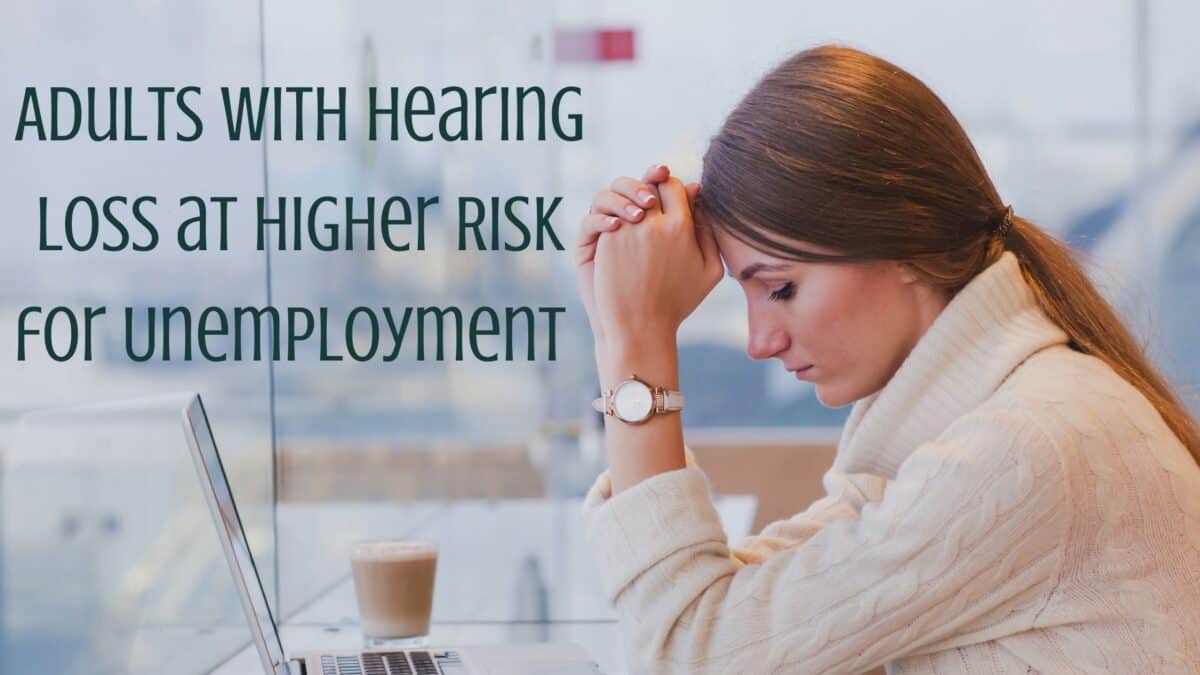Hearing loss can have a profound impact on your life. If you’re living with untreated hearing loss, you have a hard time following conversations or enjoying time with loved ones. You may choose to stay home from social events, and you find yourself asking people to repeat themselves over and over again. Hearing loss also has a huge impact on your career. In fact, a recent study found that adults with hearing loss have a higher risk of unemployment.
Hearing on The Job
Hearing loss can create problems at work. For example, you may have a hard time hearing during meetings, or mishear important information.
Difficulty communicating: Hearing loss can make it hard to communicate easily with your employer and coworkers. You struggle to work in teams, and you’re unable to contribute your valuable insight during discussions. You might mishear instructions and fail to follow conversations.
Hearing in background noise: Do you work in a noisy environment? If you have hearing loss, it can be extremely difficult to hear in places with a lot of background noise. Whether it’s office chatter, conversations in the next cubicle, or a loud job site, all this noise can make it impossible to hear what’s being said. When you have hearing loss, your ears and brain can’t distinguish between important speech sounds you’re straining to hear, and all that background noise you’re trying to ignore.
Making mistakes: Another problem at work is that you might make unintentional mistakes because you didn’t hear all the details you need to get the job done right. These mistakes can range from harmless misunderstandings to major issues that can set your team back a number of hours. This means that adults with hearing loss are also more likely to be fired, or looked over for promotions.
How Do You Handle Hearing Loss?
If you’re struggling to hear at work, it’s hard to know how to handle it. You don’t want to ask people to repeat themselves over and over again. You may be worried your boss will think you’re incompetent if you keep asking for clarification. Many adults handle hearing loss by downplaying it. They smile and nod along, and hope they don’t get asked a question. After a meeting, they piece it together as best they can, and try to do a good job even if they’re missing a lot of information.
Connecting Hearing Loss and Unemployment
Are you curious about the connection between hearing loss and unemployment? A 2015 study sheds some light on this issue. Researchers looked at data collected as part of the National Health and Nutrition Examination Survey collected between 1999 and 2002. This included over 3,300 adults aged 20-69. The study concluded that adults with hearing loss were 1.58 times more likely to have a lower income, and 1.98 times more likely to be unemployed compared to adults with normal hearing.
How to Handle Hearing Loss
Adults with hearing loss need to take it very seriously. This study found that people with hearing loss are twice as likely to be unemployed! Here are a few tips to help you hear better, and hang on to your job.
- Wear hearing aids: The best thing you can do for your hearing health, your overall well being, and your job, is to wear hearing aids. Hearing aids help you hear no matter where you are. They’ll reduce background sounds, enhance speech, and make it easy for you to follow conversations on the job.
- Trust yourself: Once you have hearing aids, the next step is to trust yourself! You know you’re good at your job, so don’t second guess yourself or worry about your abilities. You’ve earned your place on the team.
- Be open about your hearing loss: One of the best ways to build rapport at work is to let your employer and coworkers know you have hearing loss. Being open about your hearing abilities will help your coworkers understand the quizzical look you give them if you haven’t understood something. They’re also more likely to offer to repeat things or make sure you’ve understood.
Ready to find your perfect hearing aids? Visit us to start your journey to better hearing.

